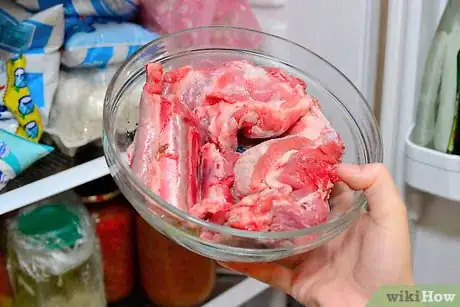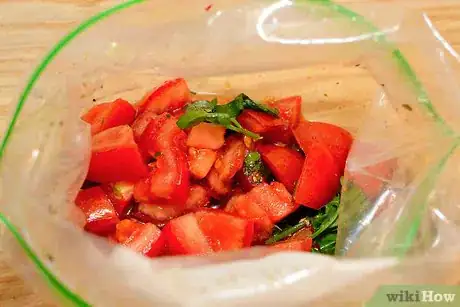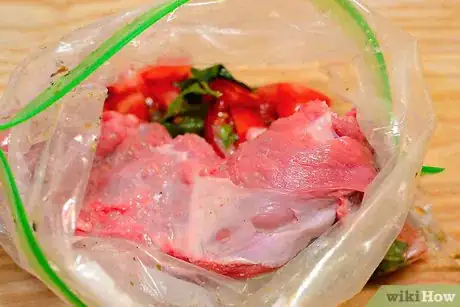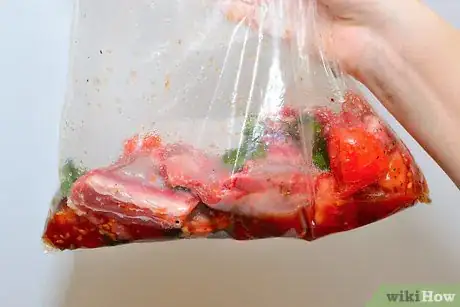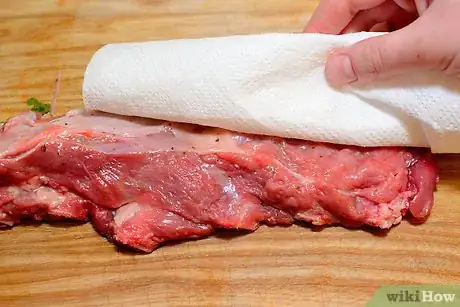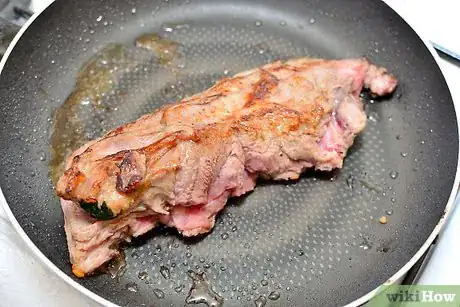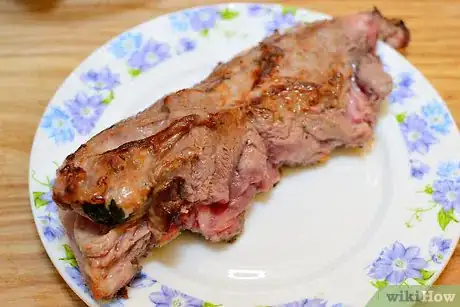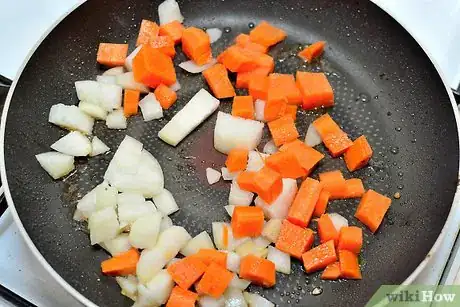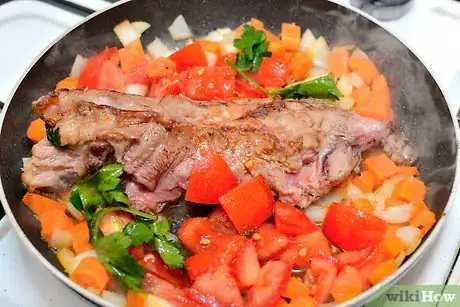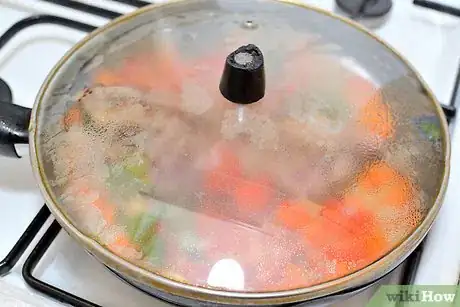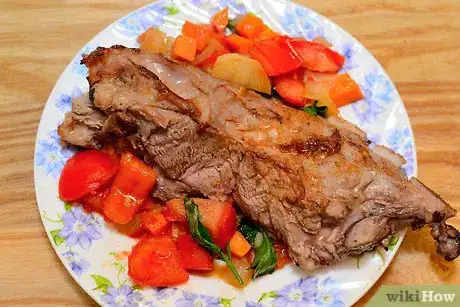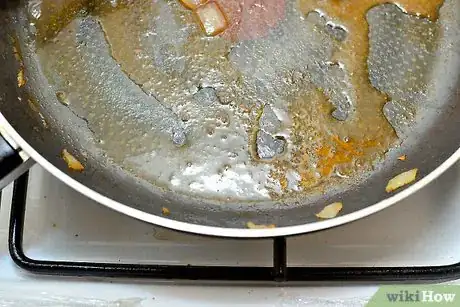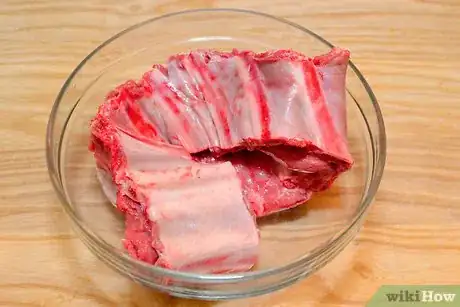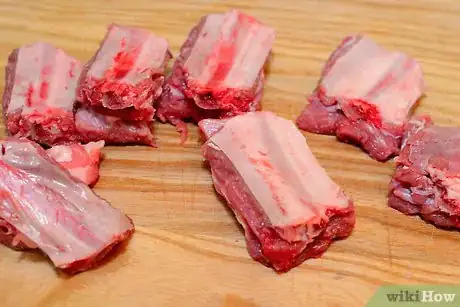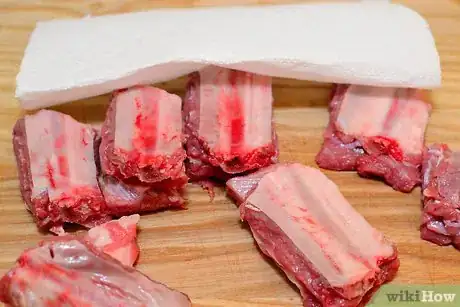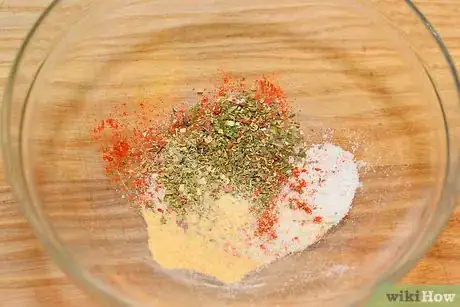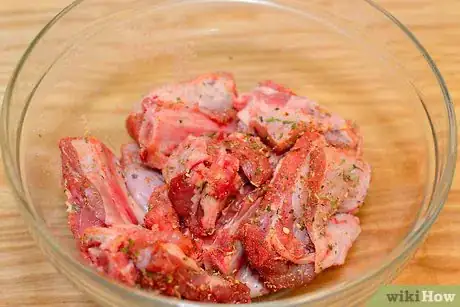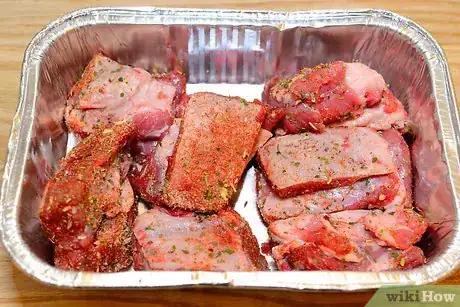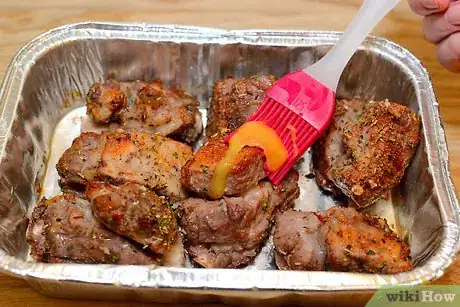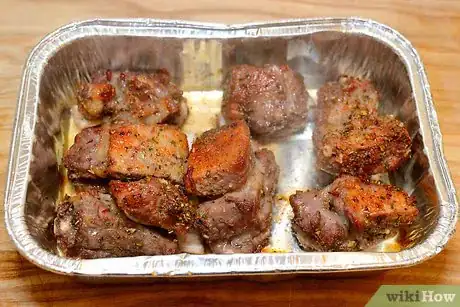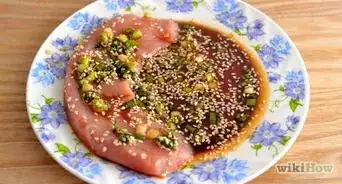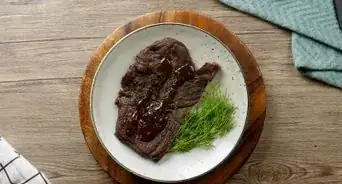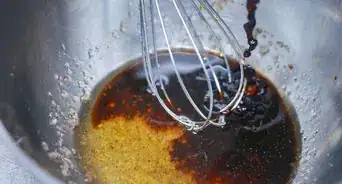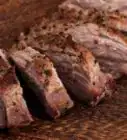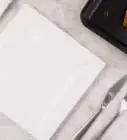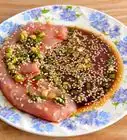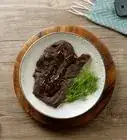X
wikiHow is a “wiki,” similar to Wikipedia, which means that many of our articles are co-written by multiple authors. To create this article, volunteer authors worked to edit and improve it over time.
This article has been viewed 39,967 times.
Learn more...
Flanken ribs are short ribs cut across the bone, instead of being sectioned off in the English style.[1] They are filled with marbled flesh and connective tissue, which makes them ideal for slow cooking. No matter how you cook them, make sure they get plenty of time on low heat, so they are fall-off-the-bone tender.
Ingredients
Marinade
- 3 cups (0.7l) dry red wine
- 3 sprigs fresh thyme
- 1/2 tsp. (1.15g) black pepper
- 2 bay leaves
- 6 oz. (0.77ml) chopped tomatoes
- 2 cups (0.5l) beef broth
- 2 cloves crushed garlic
Dry Rub
- 1/4 cup (27g) sweet paprika
- 1 tbsp. (7.2g) onion powder
- Salt to taste
- Pepper to taste
- 2 tsp. (3.2g) oregano
- 2 tsp. (6.2g) garlic powder
- 1/2 tsp. (1g) cumin
- 1/4 tsp. (0.5g) cayenne pepper
Steps
Method 1
Method 1 of 2:
Braising Beef Flanken Ribs
-
1Defrost the ribs for a day in the refrigerator. Make sure they have enough time to defrost. You don't want to defrost tougher pieces of meat, like this, in the microwave.
-
2Mix a marinade. There are several marinades that work well with short ribs, including red wine, dark beer and Asian-style ribs. If you're using the red wine marinade above, mix together the red wine, beef broth, garlic, tomatoes, bay leaves, black pepper and thyme.Advertisement
-
3Pour the marinade into a sealable plastic sack. Place your defrosted beef flanken ribs in the bag. Seal it and flip the bag several times to coat the meat.
-
4Place the bag in the refrigerator for four hours. The longer they marinate, the more intensely flavored they will be.
-
5Remove the ribs from the refrigerator and the plastic bag. Pat them dry with some paper towels. Reserve the marinade.
- Dry beef will brown better.
-
6Heat two tbsp. of olive oil in a Dutch oven on medium heat. Place the flanken into the heated pan to brown. Brown for three minutes on each side.
-
7Remove the ribs from the Dutch oven and place them on a platter. Remove all but two tbsp. of oil from the pan.
-
8Dice an onion, two large carrots and two celery stalks. Toss them in the Dutch oven and sauté them in the oil until browned. Loosen any brown bits with your wooden spoon.
-
9Place the ribs inside the Dutch oven. Pour in the reserved marinade. Heat until boiling.
-
10Secure the lid on the top of the Dutch oven. Reduce the heat to a simmer. Cook at this low temperature for one and a half hours to two hours.
-
11Remove the ribs from the pot. Set them aside and keep them warm.
-
12Bring the remaining juice to a boil and reduce it by half. Separate the fat if possible, or use the full-fat reduction as sauce. Serve immediately.[2]
Advertisement
Method 2
Method 2 of 2:
Oven-Cooked Ribs
-
1Defrost six lbs. (2.7kg) of flanken beef ribs for at least one day in the refrigerator. It may take two days to fully defrost.
-
2Cut the ribs into five to six inch strips, if they aren't already cut in this manner.
-
3Pat the ribs dry with a paper towel.
-
4Mix the dry rub as listed above. If you have half a recipe, mix half the dry rub ingredients.
-
5Rub the mixture all over the ribs. Cover them in plastic wrap and let them sit on the counter at room temperature for one to two hours.
-
6Preheat your oven to 300 °F (149 °C) (149 Celsius) near the end of the one to two hour period.
-
7Place the ribs fat side up in an oven safe dish or a roasting pan. Cover the pan securely with aluminum foil.
-
8Place the pan in the oven for two and a half hours.
-
9Remove the ribs from the oven and discard the aluminum foil. Turn the oven temperature up to 425 degrees Fahrenheit (218 Celsius).
-
10Brush the surface of the ribs with one-half cup of liquid honey. Place the ribs back into the oven uncovered. Cook for an additional 10 to 15 minutes to glaze them.
-
11Serve them immediately.[3]
Advertisement
Things You'll Need
- Plastic bag
- Marinade
- Beef flanken ribs
- Refrigerator
- Paper towels
- Olive oil for browning
- Tongs
- Dutch Oven
- Carrots
- Celery
- Onion
- Stovetop
- Measuring spoons and cups
- Oven
- Wooden spoon
- Knife
- Cutting board
- Plastic wrap
- Aluminum foil
- Honey
- Marinade brush
References
About This Article
Advertisement
